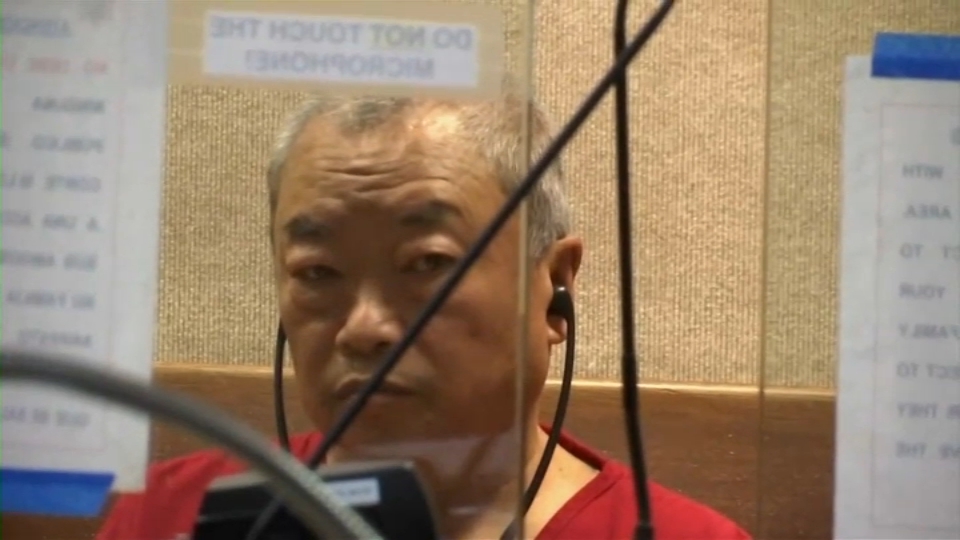Cyclist Lance Armstrong’s recent fall from grace has been portrayed in books and news accounts as a thriller featuring teammate betrayals, motorcycle drug couriers and secret blood transfusions.
But as the U.S. Anti-Doping Agency prepares to release an evidence dossier detailing its reasons for stripping the cycling star of seven Tour de France titles, the most compelling evidence might be found in dry data drawn from tests of Armstrong’s blood chemistry, a world-renowned doping expert says.
Michael Ashenden, an Australian scientist who helped create a test for the blood-doping substance EPO, told California Watch that an analysis of blood samples drawn in 2009, contained in an earlier court filing, suggests that Armstrong was recklessly using banned doping methods in an effort to win the Tour de France one more time. He finished third that year.
The tipoff, Ashenden said in an interview and follow-up email, is found in three weeks’ worth of telltale readings in Armstrong’s so-called “biological passport,” a log of blood tests sometimes used as evidence in cheating probes.
The readings show that during the race, Armstrong’s body produced fewer young blood cells than would be expected, Ashenden said. That suggests his system was adapting to the presence of an extra volume of blood that had been re-infused – and that suggests cheating, Ashenden said.
“Suppressed red blood cell production is a classic signature associated with blood doping,” he wrote. “The body reacts to the presence of excess red cells in circulation by suppressing the bone marrow’s production of new cells.”
Armstrong has adamantly denied doping, protesting that the investigation that resulted in his lifetime ban from cycling was biased and unfair.
Local
His spokesman said the blood data amounts to “no evidence at all.”
“The rules are clear to everyone but USADA: You either pass a drug test, or you fail it,” attorney Mark Fabiani wrote in an email. “There is no in between. Lance Armstrong has passed every test ever given to him, including every test administered during the 2009 Tour de France.”
The anti-doping agency has said in court filings that during the 2009 race, Armstrong’s blood chemistry “was consistent with” a banned performance enhancement method in which cyclists extract blood months before competition, and then re-inject it just before they race to circulate oxygen more efficiently.
For California Watch, Ashenden filled in details, describing his interpretation of blood data from the 2009 Tour de France that was introduced in a July lawsuit Armstrong filed in a failed attempt to block the anti-doping agency from stripping his titles.
Ashenden said that during the race, Armstrong’s blood did not become thinner as the three-week event dragged on, belying the normal wear and tear of extreme exercise. Instead, his blood remained packed with oxygen-carrying cells.
“The absence of a natural decline in blood concentration during a three-week race is also consistent with blood doping,” Ashenden said.
In February, the U.S. attorney’s office in Los Angeles halted a 20-month investigation into allegations that Armstrong had used drugs to win the Tour de France.
Anti-doping agency chief Travis Tygart pledged to pick up where the Justice Department left off. The nonprofit agency later released allegations that Armstrong led a doping conspiracy involving team riders and staff. The result: a recommended lifetime ban and nullification of seven Tour de France titles.
The anti-doping agency is expected to produce a dossier by this week. Already, accounts such as former Armstrong teammate Tyler Hamilton’s recent book, “The Secret Race: Inside the Hidden World of the Tour de France,” have spurred speculation about the contents of the dossier.
Hamilton described a painstakingly secretive doping program that included a motorcycle drug courier and clandestine transfusions.
But in his career’s twilight, Armstrong might not have been careful enough. Allowing testers to collect telltale signs of blood transfusions “fails the so-called doping IQ test,” Ashenden said.
In a follow-up email, Fabiani, Armstrong’s lawyer, contended that Ashenden was “fatally biased” because he had been an expert witness for a Texas sports promoter embroiled in a multi-million dollar dispute with the cyclist.
SCA Promotions had sought to avoid paying Armstrong a $5 million bonus for his 2004 Tour de France win, arguing that the cyclist violated his contract by using banned drugs. Ashenden testified he believed that Armstrong had used EPO. An arbitrator ruled in Armstrong’s favor. The company paid Armstrong the money, plus $2.5 million legal fees in 2007, but it may seek repayment in light of USADA’s recent findings, the New York Daily News has reported.
View this story on California Watch
This story was produced by California Watch, a part of the nonprofit Center for Investigative Reporting. Learn more at www.californiawatch.org.



